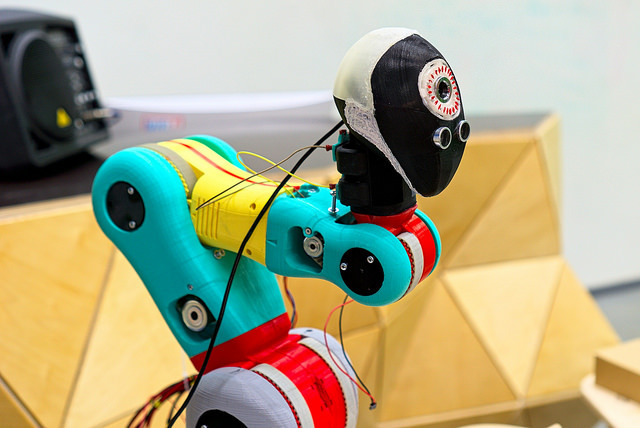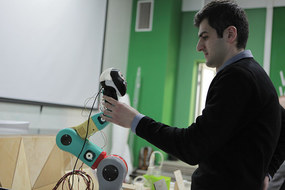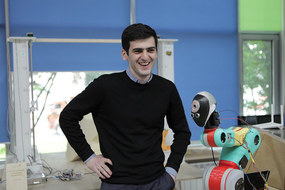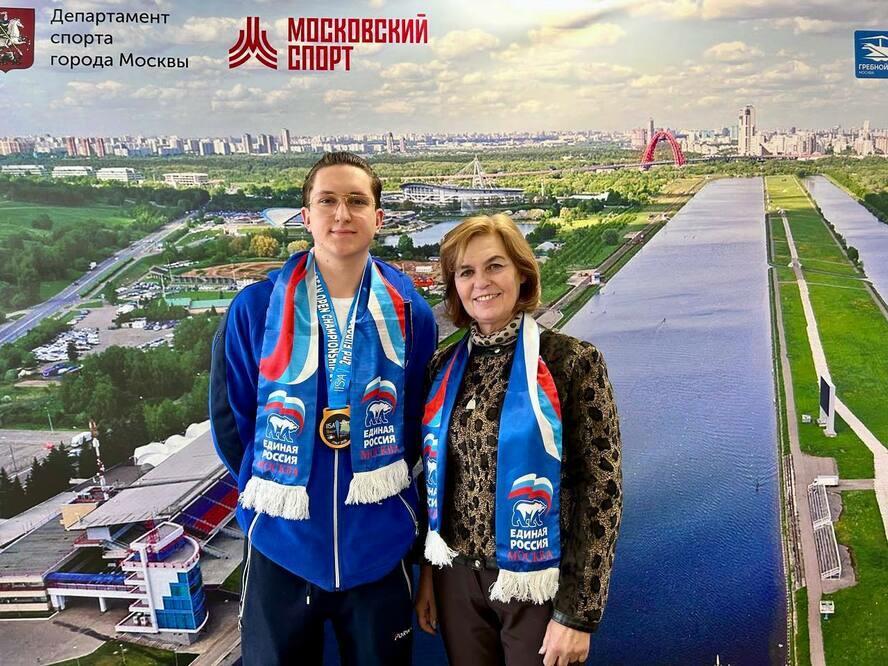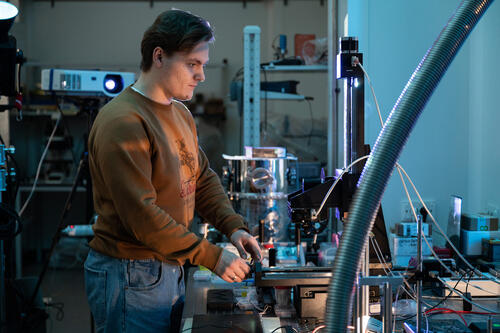Azamat Tavitov, a NUST MISIS graduate student, has developed a prototype of a facial recognition system developed on the basis of neural networks. The development’s precision can reach
Azamat Tavitov is a graduate student of Russia`s first Master`s Degree program “Materials & Technologies of Digital Production”, implemented on the basis of NUST MISIS’s FabLab. As a graduation project, every graduate student had to implement a new engineering project to demonstrate a high level of proficiency in modern design tools and the testing and manufacturing of new products. Azamat Tavitov developed a prototype of a facial recognition system used to access equipment control.
Similar to other technology of this kind, which is used by such large corporations as Google and Facebook, the development operates on the basis of neural networks. The system can be started through a standard browser, which allows you to add a user. Then the web camera takes several photos and adds the obtained files to the classifier, through which the recognition process is carried out. According to the developer, the precision of this face “recognition” can reach
Ultrasound detectors (they actually look like eyes on the manipulator’s head) help to comprehend someone’s presence. The system’s frame, which is made from plastic and printed on a 3D printer, consists of several elements. There is an axis on a ball engine at the core of each of them. Thanks to a distance finder for calculations of distances between objects, the frame moves so the web camera can adapt to a person`s height and measurements. Human interaction with the system can be carried out through a chat-bot. In the future, according to Tavitov`s plans, the system`s functions will be expanded and will be used to control all of the equipment in a lab.
“The idea of the development arose because there is a problem of quick and valid access to equipment in our FabLab, which is used by dozens of students and school students. The operation principle is the following: the person approaches the development and it recognizes him or her. If the system recognizes the person, he gets access to all of the equipment. When using our system, problems with the use of plastic cards, such as other people [using it], don’t occur. At the same time, to add a new user to a system takes only
10-20 seconds”, — said Azamat Tavitov, the Ideologist and Developer.
You can learn more about this and other developments of Russia`s only FabLab, certified by MIT, at Maker Faire Moscow on September, 9th-10th, 2017, which will be held at NUST MISIS (Moscow, Leninsky prospect, 4).
